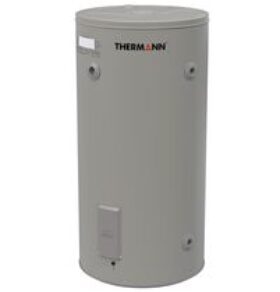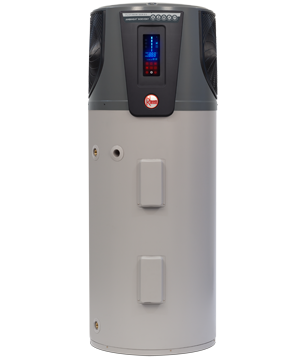Leaking Hot Water Cylinder NZ: Pete’s Guide on What to Do and When to Replace

Table of Contents
It is not only an annoying situation when a hot water cylinder is leaking but, such kind of leakage can result in water damage to your facility, waste of energy, and, in the worst case, the total breakdown of your system. Pete from The Cylinder Guy explains that a leak can be caused by any of these factors: a loose fitting, a malfunctioning valve, an overpressure situation, or corrosion inside the cylinder. You need to hurry to solve it – if you wait, it will be a much bigger money problem than the water that has leaked.
What to Do Immediately When You Notice a Leak
Start by turning off the cold water supply to the tank or the main water supply of your house to stop the leak. After that, turn off the power to the tank — switch off the circuit breaker that is labeled for your hot water system so the heating element, or gas burner, won’t be running while the tank is being drained.
After that, turn on a few hot taps in the house to release the pressure, and drain water from the tank carefully until the leak stops. When it is accomplished, get in touch with a plumber or gasfitter qualified to do the job — a person experienced like The Cylinder Guy team, for instance — to find out if it is a simple repair or something more serious.
Repair Versus Replace: How to Choose
Leaking cylinders may have different origins. For instance, if the leak is coming from externally mounted fittings such as pipes, valves, or connectors, a plumber might be able to repair it by simply tightening the parts or replacing a faulty component. But if the leak is coming from the bottom or the body of the tank, it generally implies that the inner lining or the metal shell has gone off, and therefore, the most reasonable decision is to replace the cylinder with a new one.
The matter of age is significant as well: a complete replacement of your cylinder may be more beneficial in the long run if it is more than 15–20 years old.
On top of that, The Cylinder Guy will be able to assist you in selecting the appropriate new cylinder when you opt for a replacement, whether it be a high-efficiency model, a tank compatible with heat-pump, or a system with a higher capacity.

What Happens After Replacement
Think about using modern, energy-saving options when you change your old cylinder. Pete suggests to consider heat pump water heaters that use less energy than the standard electric or simple gas ones. Besides, you could also connect a new cylinder with solar hot water panels, hence saving a great deal on your electricity or gas bills.
Tips to Prevent Leaks in the Future
To prevent future leaks, Pete advises adopting a few routine maintenance habits:
-
Test your temperature-pressure (TPR) relief valve every six to twelve months. If it’s leaking, it may need to be replaced.
-
Always make sure your hot water is set within the recommended safe hot water settings to prevent scalding and maintain system health.
-
Monitor and control water pressure. Ask a plumber to check if you need an expansion valve installed to handle thermal expansion.
-
Flush your cylinder at least once a year to remove mineral build-up and prevent corrosion.
-
Keep an eye out for rust or pitting on the external tank; if you see any, have your anode rod checked and replaced if worn.

When to Call a Professional
It’s time to call in the experts when:
-
There is water leaking continuously from under or around the cylinder.
-
The TPR valve won’t close or constantly drips.
-
You spot corrosion or cracks in the cylinder’s exterior.
-
The system leaks even after you’ve drained it.
-
You want to upgrade or replace the unit for better efficiency.
For help, get in touch with The Cylinder Guy team to inspect, fix, or replace your cylinder.
Don’t Wait for a Bigger Problem—Get Your Cylinder Checked
Any leakage situation in the hot water cylinder of your house is an absolute no. A hasty response — turning off water, draining the tank, and calling a technician — may entirely avert damage and money out of your pocket that you hadn’t expected. A mere fix may be enough if it is only one instance, but generally, it is a more sensible decision to replace it in the long run. By proper care and regular servicing, your new cylinder will be a great comfort for a long time.
If you’re considering a fix or an upgrade, The Cylinder Guy is ready to help you choose the best solution for your home.